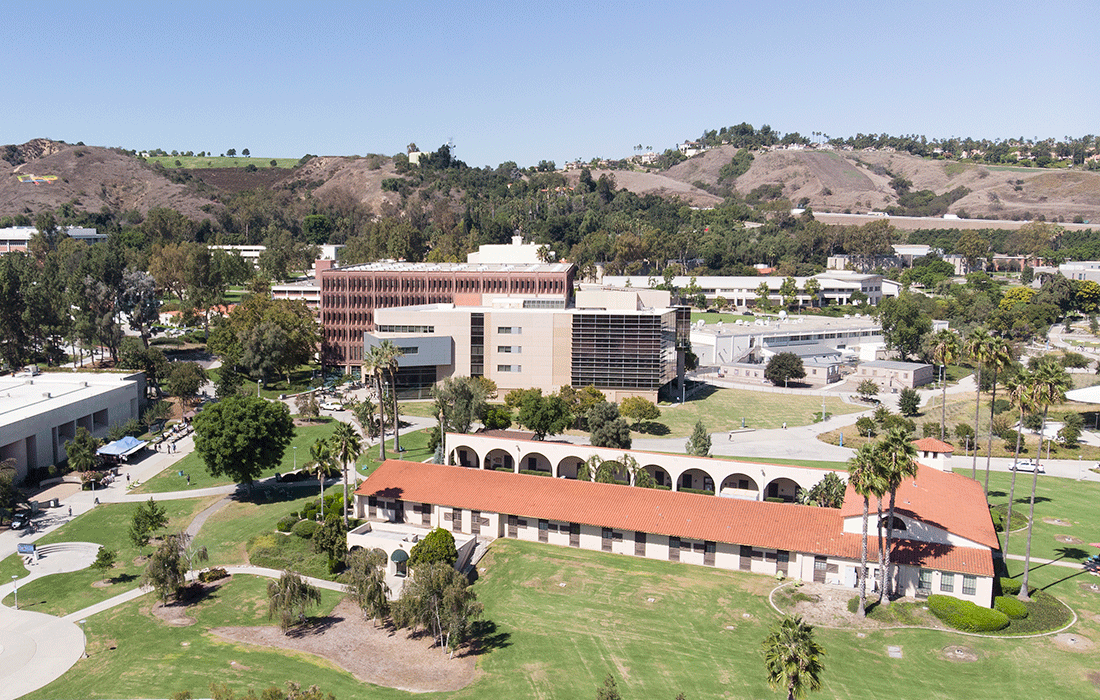Cal Poly Pomona made has been selected as a Fulbright Hispanic Serving Institution (HIS) Leader for 2024.
This is the first time the university has earned placement on the prestigious HSI leader’s list. The honor from the U.S. Department of State’s Bureau of Educational and Cultural Affairs recognizes HSIs for their strong engagement with the Fulbright Program, the U.S. government’s flagship international academic exchange program.
The HSI designation is given at the federal level to universities with a student body that is at least 25 percent Hispanic and is committed to ensuring student success. Nearly half of Cal Poly Pomona’s 27,000 students identify as Hispanic or Latinx.
CPP was one of only 51 colleges and universities recognized this year, which included seven associates colleges, five baccalaureate colleges and special focus institutions, 10 master’s colleges and universities and 29 doctoral universities.
Other CSU campuses included this year are CSU Northridge, San Diego State and San Jose State. Fulbright HSI Leaders demonstrate noteworthy support for Fulbright exchange participants and encourage administrators, faculty and students at HSIs to engage with Fulbright on campus.
The Fulbright HSI Leaders Initiative also highlights the strength of HSIs as destinations for international students and scholars. CPP had four faculty members who were selected for Fulbright awards this past year and hosted a Fulbright foreign student.
“Our Fulbright Scholars contribute to and enrich the learning environment at Cal Poly Pomona, and we take great pride in their commitment to representing the polytechnic experience across the globe,” said President Soraya M. Coley. “We look forward to seeing how they’ll continue to create opportunities for education and success across communities worldwide.”
This is not the first time CPP has been recognized for its involvement in the Fulbright Scholars program. In February, the university was named a 2023-24 U.S. Fulbright Scholar Top Producing Institution for STEM Fields and a Top Producing Institution for U.S. Fulbright Scholars among master’s-granting universities.
Since the 1953-54 academic year, 44 CPP faculty members have participated in the Fulbright program, which aims to foster an academic exchange of scholars and professionals to support friendly relations between the United States and participating countries. To date, the university has hosted 14 visiting Fulbright faculty from Europe, Asia, Africa and South America.
Education Professor Richard Navarro, who serves as the coordinator of graduate programs in the College of Education and Integrative Studies, points to efforts by faculty members as the reason for the university’s Fulbright recognition.
“This award is a good demonstration of faculty initiative,” Navarro said. “Faculty have really pursued the Fulbright program. And the former liaison, retired [Sociology] Professor Mary Yu Danico, played a critical role in helping to promote Fulbright for our institution.”
Navarro has received a research fellowship from the program and a Fulbright Specialist Program award. In 2010-11, he conducted research on the impact of the development of higher-education institutions on emerging economies in the Maldives.
As a Fulbright specialist, Navarro recently returned from Peru after spending more than a month there helping three higher-education institutions craft action plans for overcoming barriers to building relationships between the institutions and the private sector.
The programs that Fulbright offers helps U.S. participants broaden their perspective globally and enable them to apply their skills and knowledge beyond their home country, Navarro said, adding that Fulbright is for faculty what study abroad is for students.
“Fulbrighters are expected to be on-the-ground ambassadors for the United States,” he said. “CPP has a very international faculty, and the Fulbright Program allows them to connect their past with their present and promote a future of international global understanding.”
For Indira Guzman, a computer information systems professor, her Fulbright Scholarship in 2000 took her from her native country, Bolivia, to the United States, where she would eventually make her new home.
Guzman was teaching information systems at Catholic University in Bolivia when she learned about the Fulbright scholarship and decided to apply. She recalled being in a packed room of fellow applicants taking tests as part of the selection process.
“I remember it being very competitive and only two people were selected,” she said.
Guzman, who was one of the two, headed to New York for a Fulbright Scholars workshop designed to acclimate Fulbright participants to American culture and improve their English skills. She then headed to Syracuse University where she earned her master’s and doctoral degrees.
“Learning about the U.S. and living in the U.S., it was eye-opening, especially from a technology perspective,” Guzman said. “Having access to all of the different tools and technologies, I enjoyed learning the latest of the latest. I still love technology. I loved the people and the culture, and it was important to go back to my country to use what I learned.”
The biggest benefit of the Fulbright program is the spirit it fosters to increase knowledge and provide an educational and cultural exchange, Guzman said, adding that the more she heard about the program, she started to realize just how recognized it is.
“It is really the prestige of Fulbright,” she said. “Every time I would have meetings, I would learn more about Fulbright. Every year, there were new scholars who had great achievements. The Fulbright program changed my life completely.”
Since its founding in 1946, the U.S. government-funded Fulbright program has provided more than 400,000 talented and accomplished students, scholars, teachers, arts and professionals of all backgrounds and in diverse fields with the opportunity to study, teach and conduct research abroad at host institutions.
Learn more about Fulbright at www.fulbrightprogram.org, including Fulbright’s commitment to DEIA within the program and about how HSIs engage with Fulbright.











